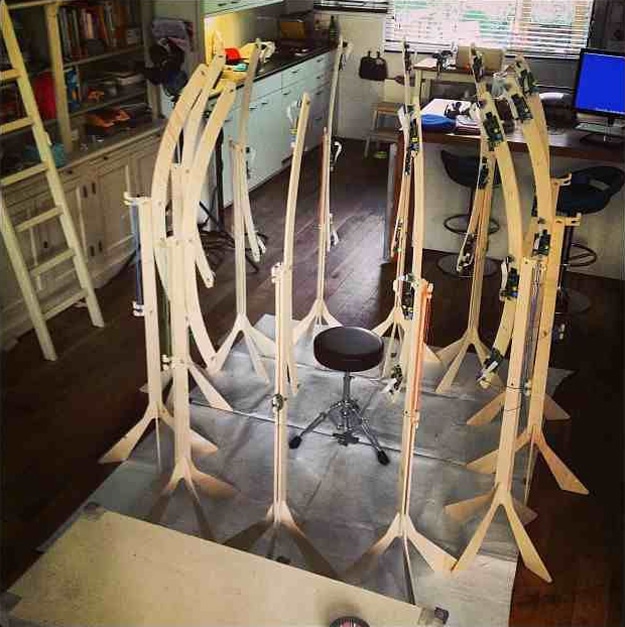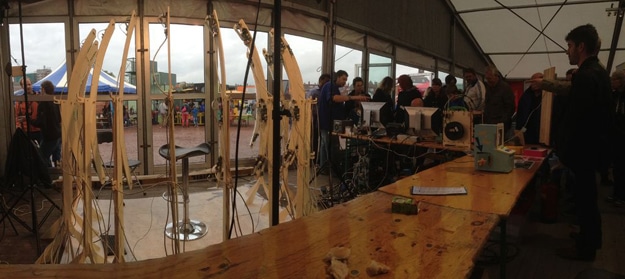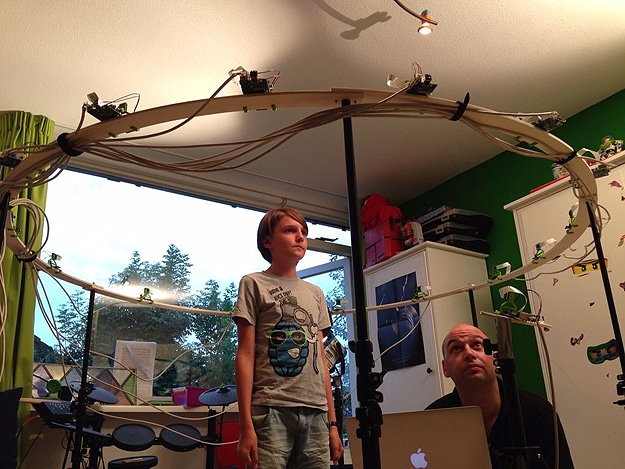The need for 3D scanners is becoming ever so evident as 3D printing is getting more popular. Now when even hobbyists are able to prototype their ideas in a way that was never available to them before, the need to be able to virtualize objects is of great importance. By virtualizing objects, you are able to change and refine details that you were not able to before. A recently announced life-size Raspberry Pi 3D scanner is an incredible innovation that could start a revolution.
It is tinkerer Richard Garsthagen that has used the much versatile pocket computer Raspberry Pi to create a life-size 3D scanner, which could have a profound impact on how we virtualize large objects in the future. He recently took his 3D scanner build to MakerFaire Groningen, and scanned more than 200 people with exceedingly perfect results. The insane detail of the 3D scanner is both mind-boggling and a revolution in 3D scanner technology.
Most 3D scanners are created to virtualize small objects, therefore, makes it impossible to scan even medium sized objects. Richard’s 3D scanner is a formidable step up from those now redundant creations.
The 3D scanner build features 39 Raspberry pocket computers, each with a corresponding camera positioned 360 degrees around the object to be scanned. The cameras are synced to take photos at the same time which enables larger objects to be scanned. Once the 39 photos are taken, they are uploaded to a local SAN for further processing. Once processed the 3d modeling is done using the free cloud service from autodesk called Recap.
The final 3D object is so detailed that you can zoom into the smallest detail, and still be able to see textures even beyond the capabilities of a 3D printer. This of course makes Richard’s 3D scanner one of the best scanners on the market. With 39 Raspberry Pi’s along with 39 camera units, it might not be the cheapest project to assemble. However, it is definitely cost effective if you want to scan large objects that regular 3D scanners are not able to take on. All in all, this is one groundbreaking build, and we can’t wait to see where further optimization might take it.



COMMENTS